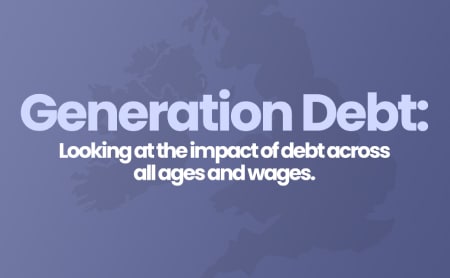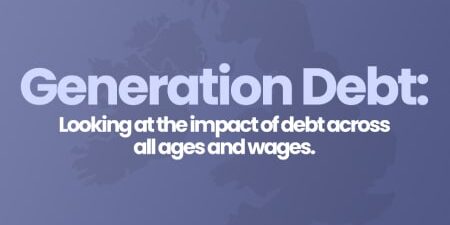
Over the past few years, the UK has seen a big change in how we view and manage personal debt. What used to be avoided is now a normal part of everyday life, with various types of credit being used more frequently.
Buy Now, Pay Later (BNPL) products are becoming an increasingly popular payment method in the UK and have gained significant traction among younger people due to the flexibility and ease of use.
This article draws on the BNPL insights from the recent collaborative report between MoneyPlus and Etic Lab (a digital research and design consultancy), titled Problem Debt in the Cost of Living and Beyond. It looks at the rising popularity of BNPL, its impact on personal finance and the increasing need for regulation.
What is BNPL?
BNPL is a type of short-term financing that lets customers purchase items without the need to pay the full payment at once. Instead, the cost is spread over a series of instalments, this is usually around a 12-month period. You’ll typically make a payment upfront, followed by regular monthly repayments.
When properly managed, it’s an affordable and faster method for accessing credit. However, many people are unaware that issues with repayments such as missing payments or failure to repay, can lead to late fees and lower credit scores.
This service has become one of the fastest-growing credit options in the UK, with nearly half of all adults having used it at some point. In 2023 alone, Brits spent £16.8 billion through BNPL services including Klarna and Clearpay – a 12.8% increase from the previous year.
Despite its convenience, BNPL is currently not regulated by the Financial Conduct Authority (FCA), which has led to concerns about the impact its having on consumers’ financial health.
The attraction and risks of BNPL
The reason BNPL is so attractive is clear—it’s straightforward, fast, and usually doesn’t involve thorough credit checks, making it very accessible—even for consumers who might have a low credit score or unstable income. But this easiness can also lead to problems. It’s easy for consumers to accumulate debt quickly, often without realising the full impact it might have on their finances.
Recent statistics from the Generation Debt report show that in January 2023, there was a 258% increase in customers with BNPL debt, which then increased to 915% by January 2024.
According to the FCA, those who use BNPL services were over four times as likely to have missed a payment of a bill or credit commitment in 2022. This shows that whilst they’re easily accessible, this form of borrowing can lead to spending more than what’s affordable, resulting in problem debt.
Young people and debt
BNPL products are particularly popular with younger consumers. Last year, the Centre for Financial Capability found that 54% of 18–24-year-olds were expected to use BNPL services within the next 12 months.
For many, it’s their first experience with credit, which could potentially lead to their first serious debt problems. It’s important that young people get debt advice from professional debt advisors or debt charity Money Helper if they are struggling with managing their money so they’re able to access credit responsibly.
The importance of regulation
Back in February 2021, the Government announced plans to regulate BNPL services, including checks to make sure customers can afford what they borrow. These changes were intended to ensure people wouldn’t take on more debt than they could afford.
As of 2024, these regulations still haven’t been implemented, leaving a gap in protection for consumers using these services. This delay means that consumers who continue to use BNPL without adequate affordability assessments may face potential detriments such as late fees, and the consequences of missed payments can extend to their credit files, potentially leading to further financial difficulties.
BNPL services and debt solution providers
One of the main issues with BNPL services is the lack of regulatory oversight, which means they don’t have to follow the same rules as other types of credit, such as loans and credit cards.
Due to this regulatory gap, BNPL providers can often be less motivated to work cooperatively with debt solution providers. And efforts to manage debt effectively are less successful because creditors who aren’t regulated, can be harder to negotiate with.
Getting help from experts who handle debt is important when you’re dealing with money problems. Expert advisors can offer valuable support in navigating financial challenges and negotiating with creditors.
Balancing credit accessibility and financial health
The rapid rise of BNPL in the UK shows how appealing, easy, and accessible credit is. However, without regulation, this convenience could lead to significant financial problems for many, particularly young and inexperienced borrowers.
As the UK continues to deal with a growing debt problem, a joint effort by regulators, creditors and debtors is essential.
If you’d like to read more on problem debt, you can download the Etic Lab and MoneyPlus report, Problem Debt in the Cost of Living and Beyond report, or listen to the podcast for free.

